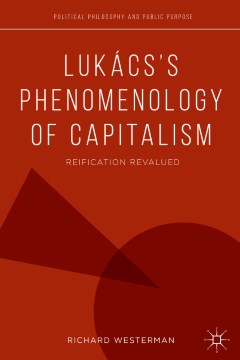Book | Chapter
Self-consciousness and identity
pp. 201-237
Abstract
Westerman examines Lukács's identification of the proletariat as the site of the overcoming of reification. While agreeing that his argument is not entirely convincing, Westerman argues that its failure is more interesting than normally assumed. First, Lukács suggests that reification produces a contradictory structure within individual consciousness that fragments the subject, leaving their lives increasingly empty. While his argument may not succeed entirely, it offers useful ways to think about how reification may be ruptured, and the seeming permanence of capitalism may be brought into question. Such fragmentation, however, is only negative—and may equally well generate reactionary responses as revolutionary ones, as shown by the recent rise of populism. Lukács suggests that an open, inclusive Party is the way to avoid this: it provides a fluid forum in which subjects may work together in generating a common identity.
Publication details
Published in:
Westerman Richard (2019) Lukács's phenomenology of capitalism: reification revalued. New York, Palgrave Macmillan.
Pages: 201-237
DOI: 10.1007/978-3-319-93287-3_6
Full citation:
Westerman Richard (2019) Self-consciousness and identity, In: Lukács's phenomenology of capitalism, New York, Palgrave Macmillan, 201–237.



